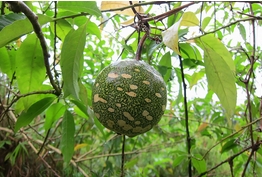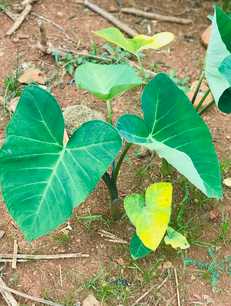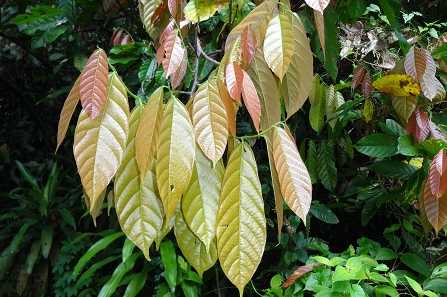
support@yorubalibrary.com
+2348073529208, 07038599574

One Yoruba proverb says “Bi ko si Tagiiri, awo kole hu”. This is the exact fruit they are referring to in the proverb. Tagiiri is otherwise known as Tangiri, or Elegiri in Yoruba land Lagenaria breviflorus, known as Tagiiri in Yoruba, is a plant renowned for its medicinal properties and cultural significance. Found in various parts of West Africa, Tagiiri is part of the gourd family and has been used in traditional Yoruba medicine for generations.
Key Facts
Category: Gourd
Botanical Name: Lagenaria breviflorus
Common Name: NIL
Yoruba name: Eso Tangiri
Igbo Name: NIL
Hausa Name: NIL
Botanical Characteristics of Tagiiri
Tagiiri is a perennial plant characterized by its creeping or climbing vines and hard-shelled fruits. The fruits are usually small, round, and green with a tough exterior. The plant thrives in tropical climates and is commonly found in the wild across Nigeria and other West African countries.
Traditional Uses of Tagiiri
In Yoruba culture, Tagiiri is used for both practical and medicinal purposes:
1. Container Making:
The hard shell of Tagiiri fruits can be hollowed out and used as containers for storing liquids or dry goods.
2. Musical Instruments:
The dried shells are often used to make traditional musical instruments like shakers and rattles, which play a significant role in cultural ceremonies and rituals.
Medicinal Benefits of Lagenaria breviflorus
Tagiiri is highly valued in Yoruba traditional medicine for its therapeutic properties:
1. Antimicrobial Properties:
Extracts from Tagiiri have been shown to possess anti-microbial properties, making them effective in treating infections and wounds.
2. Anti-inflammatory Effects:
The plant is used to reduce inflammation and relieve pain associated with conditions such as arthritis and rheumatism.
3. Antioxidant Benefits:
Tagiiri contains antioxidants that help combat oxidative stress, reducing the risk of chronic diseases and promoting overall health.
4. Digestive Aid:
The plant is used to treat digestive disorders, including constipation and indigestion, by promoting healthy digestion and bowel movements.
5. Immune System Support:
The bioactive compounds in Tagiiri can enhance immune function, helping the body resist infections and illnesses.
Modern Applications of Tagiiri
With increased interest in natural remedies, Tagiiri is gaining attention for its potential in modern herbal medicine. Its extracts are being studied for use in pharmaceuticals and as dietary supplements, highlighting its relevance beyond traditional settings.
Conclusion
Tagiiri (Lagenaria breviflorus) is a plant of great importance in Yoruba culture, known for its practical uses and medicinal benefits. Its enduring role in traditional medicine and potential in modern applications underscore its value as a versatile and beneficial plant.
Have you heard of our Yoruba Herb Dictionary? This contains names of Yoruba Leaf, Roots, Barks, Characteristics, Properties & Identification with HD Pictures. Order below or download sample here
GET A-Z YORUBA HERBS PDF #3K
Ewe Kókò (Cocoyam Leaf) is a Yoruba edible medicin…

Ewe Kòkó (Cocoa Leaf) is a Yoruba herbal medicine …